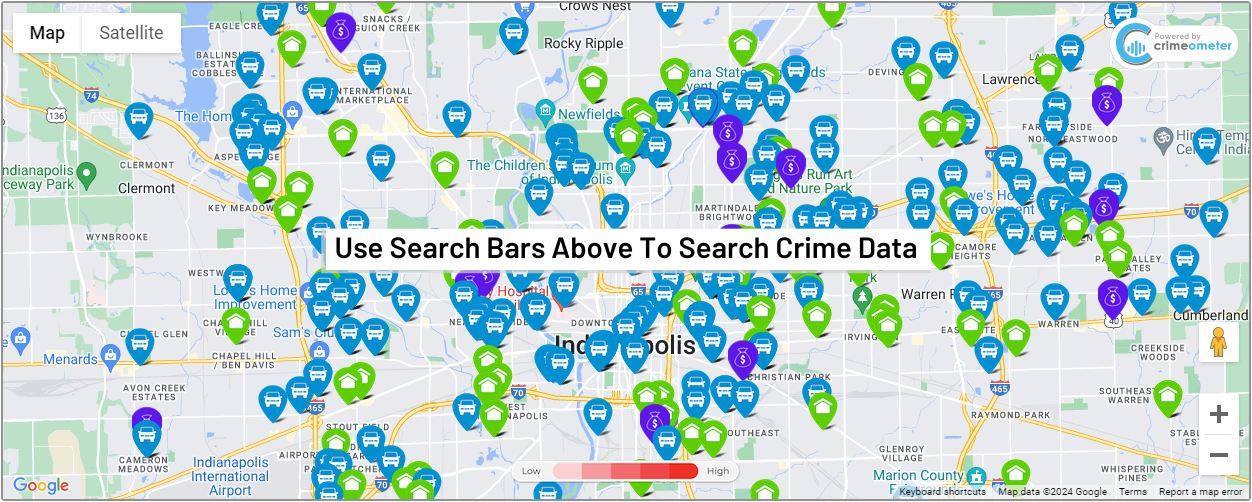‘Law and Crime Daily’ host: Sealed documents in Delphi murders case is ‘rare’ situation
INDIANAPOLIS (WISH) — The host of a law and crime TV show tells News 8 how rare it is for the documents charging someone with a crime to remain sealed.
Brian Burkmire is criminal defense attorney in the New York Public Defenders’ Office and host of “Law and Crime Daily,” which airs on WISH-TV at 11:30 p.m. weeknights after News 8 at 11 p.m. News 8 anchor Phil Sanchez interviewed Burkmire on Wednesday afternoon.
An Allen County judge on Tuesday had a hearing on the sealed documents charging Richard Allen with the 2017 Delphi murders of two girls. She is expected to decide whether to share the documents as soon as next week.
Allen was arrested on Oct. 28 and murder charges were announced on Oct. 31. He faces two counts of murder for the deaths of 13-year-old Abigail “Abby” Williams and 14-year-old Liberty “Libby” German near Delphi in February 2017. He was being held in an undisclosed facility while awaiting trial.
The probable cause affidavit, typically submitted by police and prosecutors, shows the evidence against an individual to convince the judge to approve an arrest. Usually, once a person is charged with a criminal offense, that affidavit is released. Burkmire shares why it’s rare for them to be withheld from the public.
BURKMIRE: “It’s rare for two reasons. One, the type of cases where you typically see this, it’s not the average case that goes about. It’s usually for homicides and homicides that are intricate enough that more investigation needs to happen even after a person is arrested.
“So you can cut it down to that small portion or types of cases. Then you start to ask questions of why do we need a protective order or a sealing like this? It’s oftentimes, again, not, ‘Hey, smoking gun, person Dead.’ It’s a mystery that needs to be solved, and that information can not be made public until it is solved.”
QUESTION: Does sealing mean more suspects or more arrests possible?
BURKMIRE: “They’ve already hinted at Allen’s arraignment that there are potential other suspects, but, more importantly, it’s about interrogations for both potential witnesses and suspects. Think of it this way: If they go and arrest someone because maybe Allen isn’t the murderer, or maybe he’s just the person who staged the scene to make it look like something it wasn’t, in questioning that suspect or questioning that witness, they don’t want that person to pull from information they heard publicly. They want to make sure if they know about this case, they know about this case because they’re involved in one way, shape or form.”
Q: How much leeway for judge to redact information?
BURKMIRE: “The judge has all the leeway in the world. They can just show you one word. They can show you none. They can show you everything. What I think it likely going to happen is the judge is going to have an attorney-eyes-only type of release, where the attorneys get to see it. Maybe they allow the attorneys to share it with their client, Mr. Allen. Maybe there’s a gag order then that they cannot speak to the public. Then, in terms of what the public gets is what the police or prosecutor asks for the judge to give to them in order to allow for that investigation to continue without any interruption. This allows for Allen and his defense attorneys to have all the information to defend him, but still protects the integrity of the investigation. it’s kind of a mixed bag on what the judge can do.”
Q: When does defense get to see all of the evidence?
“Hopefully, pretty soon, because the way Indiana law works is they actually get to depose or question potential witnesses. So, all of that information needs to be given to the defense attorney as soon as possible so they can pretty much do their own investigation of the case as well, try to see if there’s a defense here, try to see if maybe this is the wrong person that got caught up in this case, or maybe the evidence is so strong they’re looking to take a plea.
So, the judge will create a timeline of when casual discovery will be turned over, but then also when motions can be argued for the defense to say we’re entitled to this, so give it to us.”
- Oct, 13, 2022 News 8 report: Why are the court documents sealed in the Delphi murders?
Prosecutor reiterates reason to keep affidavit sealed
The prosecutor in the 2017 Delphi murders said Wednesday that believes he has a very solid case against suspect Richard Allen.
Carroll County Prosecutor Nick McLeland in a statement reiterated his request to keep the probable cause affidavit sealed writing: “We strongly believe the evidence shows Richard Allen was involved in the murder of Libby and Abby. Regardless of the ruling, we believe we have a very solid case against Mr. Allen and look forward to making our argument at trial.”
The statement did not say directly he believes Allen killed the girls in February 2017.
The prosecutor issued the statement a day after requesting a gag order in the case.
The judge is expected to make a ruling on both requests in the next week or two.
- Delphi murders suspect wants out of jail while awaiting trial
- After Delphi murders arrest, Libby’s family calls it ‘somewhat bittersweet’
- Drugstore worker’s arrest in Delphi murders stuns residents
- Judge cites ‘blood lust’ for info, recuses self in Delphi murders case
- Indiana police superintendent: Delphi murders’ facts will come out at trial
- Source: Investigators have known for years that the Delphi suspect was on the Monon High Bridge the day Abby and Libby were killed




